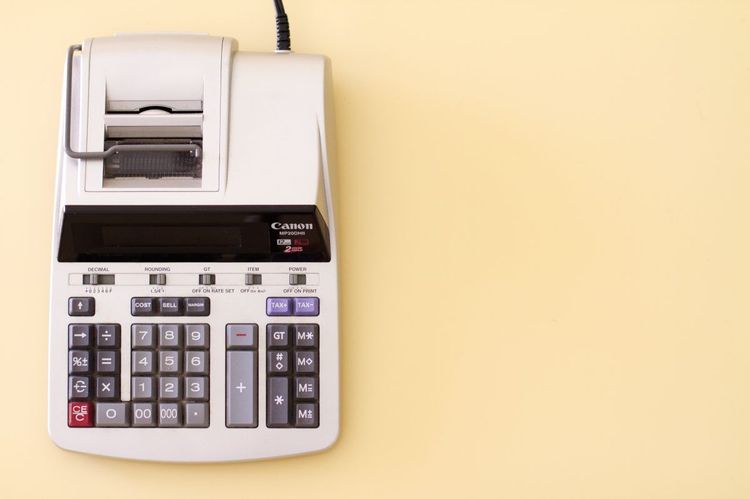Davidson County Property Tax Hike: What It Means for Nashville


by Tyler Forte
We know, we know, you’re focused on the election right now. But if you live around Nashville and pay any attention to local politics, you’ve probably heard about another controversial topic: The 34% increase in Davidson County property taxes.
This historic tax hike is already causing some political theater worthy of Shakespeare, complete with angry protests, constitutional conundrums, and even an anti-hike campaign involving the infamous Koch brothers. For those starting in the middle of this story, we’re here to explain what might happen, and how it could affect you.
The Tax Increase
The 34% property tax hike raises the property tax rate from $3.155 to $4.221 per $100 of a property’s assessed value. This means that annual taxes on a $290,000 home—roughly the average home value in Nashville—will increase by $772.85, from $2,287.38 to $3,060.23. This is sure to frustrate homeowners and potential buyers already struggling to cope with the pandemic. Businesses, which face a 15% higher assessed value than residential properties, have even more reason to be unhappy to see this levied at a time when revenues are dwindling. That being said, this isn’t necessarily a disaster.
What This Means For Nashville
Davidson County’s earlier tax rate of $3.155 per $100 of assessed value was, frankly, quite low. It was easily the lowest property tax rate of any large metropolitan area in Tennessee and hadn’t been raised since 2012. Some would argue that we were simply due for a hike. Even after this historic raise, Nashville’s property tax rate is still competitive with places like Memphis, and better than others, like Charlotte and Atlanta. However, considering the difficult timing and the city’s seemingly exponential growth in the past twenty years, it’s hard to justify this new tax imposition
For one, Nashville real estate has been basically bust-proof under the current tax conditions. Even as home values across the country have stagnated since 2018, our market has surged upward. Property taxes are often used to compensate for sagging market property values, but this strategy shouldn’t apply to Nashville, where home values were projected to spike about 4.5% in 2020. This growth already generates more tax revenue, so why impose a higher rate, especially since it could actually jeopardize that growth.
The pandemic already has some homebuyers insecure and hesitant. Add an extra $1,000 per year, or so, in property taxes to the equation, and some might cool on buying in Davidson County. If just one in every ten potential buyers were to go in a different direction, the decreased competition would almost guarantee a lower rate of growth in property values. Thus, the property tax increase could actually drive tax revenue down as property values stagnate.
The consequences for Davidson county’s commercial sector could be even more dire, as companies struggle with the higher overhead. Companies like Amazon, Bridgestone, GM, and Mitsubishi are all expanding their Nashville operations this year, partly due to reasonable property taxes. In raising the tax rate, Davidson County threatens that business growth, along with its added tax revenue. These businesses also attract employees who buy houses. When they aren’t hiring, there’s less competition in the housing market, which leads to—you guessed it—lower property values. There’s nothing wrong with supporting schools and city employees, but burdening your business sector in times like these is a risky way to do it.
The Fight Against The Hike
This threat to business is why the Koch brothers, controllers of Koch Industries, the second-largest privately-owned company in the U.S., have helped lead the fight against the tax hike. Their advocacy group, Americans for Prosperity, is one of the parties backing a referendum to see it repealed. They coordinated the collection of over 27,000 signatures in opposition of the tax hike. As of today a judge is about to rule on whether support for the referendum is legitimate, and whether the repeal would violate state law. If the judge rules in favor of the referendum, then it will be on the December 5th ballot. The passing of this measure would ensure that the Metro cannot raise property taxes more than 2% without voter approval.
This would both preserve the real estate market’s momentum, and protect us from a dangerous precedent. The last thing we need is the county deciding it can just jack up property taxes every time it wants some extra cash.
Nevertheless, the referendum might not pass, or even make the ballot. If this happens, don’t panic. Property in Nashville will still be a strong—if more expensive—investment, and businesses have many more reasons to operate in this area than just low property taxes. If you’re one of the many Nashvillians who just can’t stand paying this extra tax chunk, however, there are still plenty of other wonderful places in the Nashville area to call home.
Still Want To Avoid The Tax?
Some of the most sought-after suburbs in the entire Southeast are right outside of Davidson County and have refreshingly low property tax rates. In Nolensville, just south of town, you’ll pay only $2.37 per $100 in assessed value. Spring Hill ($3.07), Franklin ($3.23), and Brentwood ($2.58) aren’t far behind. Even Murfressboro’s rate of $3.50 comes in well under Davidson County’s new tax rate. The fact is, this tax hike may be inconvenient, but there’s no reason for it to keep you out of the Nashville area. As far as Davidson County goes, though, the situation remains murky. Just remember that even after Election Day, there might still be a reason to cast a vote.
About Felix Homes
Felix Homes is where five-star service meets low commissions! To date, we've saved our clients $1,610,738 in commission fees and have earned 120 five-star reviews on Google!
How are we able to offer five-star service AND lower commission fees? It's simple:
- We're an independently owned brokerage – not a franchise which allows us to keep more of the commission we earn.
- By offering a lower commission, more folks want to work with us which means we close more deals. By closing more deals, we can pass more savings along to our customers!
Still not convinced? Read all about our low-commission mission here.
If you have any questions about the state of the market or the home buying/selling process, please feel free to contact us at contact@felixhomes.com or 615-354-5731.




